Governance and Finance
In recent decades, corporate governance no longer focuses on maximizing shareholder value but on balancing all stakeholders' interests. Corporate governance is then viewed more broadly as the nexus of rules, practices, and processes that determine the objective of a firm. Absent good governance, shareholders might realise inferior returns, creditors might lose interest payments, business partners might suffer from contract breaches, and employees might lose their future career opportunities (e. g., managers that used to work for Enron). High-quality governance ensures that all stakeholders' capital is effectively managed. Firms benefit from good governance in various ways, such as a higher valuation, a lower cost of capital, better talent attraction, and higher customer loyalty, for example.
The research group “Governance and Finance” studies traditional and modern views of corporate governance in financial markets and contributes to the literature in two ways. First, it contributes to understanding the effectiveness of different governance mechanisms' roles in talent selection, incentive, and retention. Individuals carry out corporate objectives, and good governance must ensure that the most qualified talent is allocated to the optimal position, exerts optimal effort, and stays with the firm. For example, the most important duty of the board of directors is to select, incentive, and retain the most talented/suitable CEO.
Second, this group also investigates how various forces in credit market impact corporate governance. Various stakeholders seek to influence corporate strategy differently with recent advances in the financial market. For example, the rise of common ownership might reduce firms' incentives to compete, the increase of active ownership might suddenly switch firms' investment strategies (i. e., shareholder activism), and the participation of shareholders in the credit market provides opportunities to internalise the shareholder-creditor conflicts. This group's research seeks to advance the knowledge of different stakeholders' methods and their effectiveness in influencing governance objects.
Workpackage 1: Talent Selection, Incentive, and Retention
Workpackage 2: Stakeholders and Governance
Research Cluster
Financial Resilience and RegulationYour contact

- Department Financial Markets
Refereed Publications
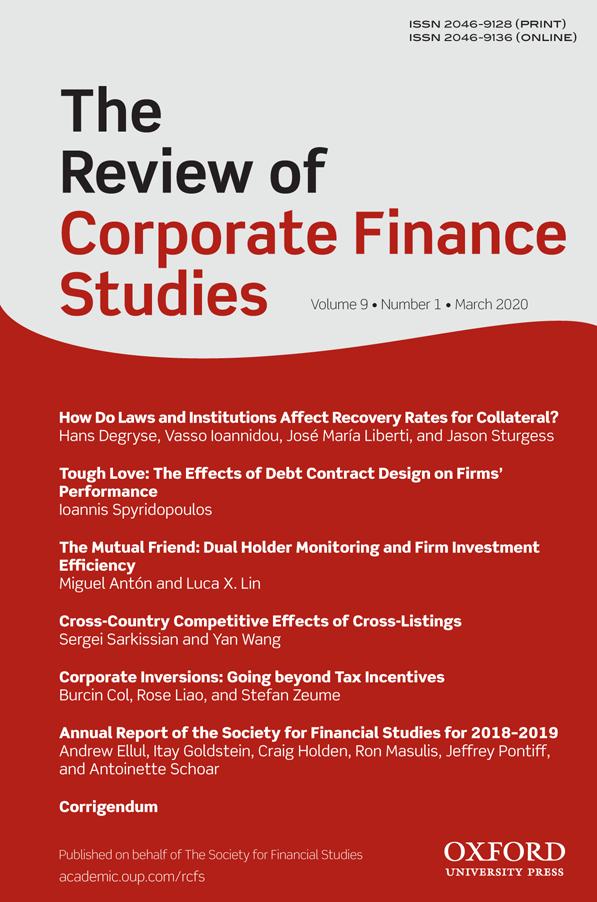
Tournament Incentives and Acquisition Performance
in: Review of Corporate Finance Studies, No. 2, 2020
Abstract
This paper examines the impact of promotion-based tournament incentives on corporate acquisition performance. Measuring tournament incentives as the compensation ratio between the CEO and other senior executives, we show that acquirers with greater tournament incentives experience lower announcement returns. Further analysis shows that the negative effect is driven by the risk-seeking behavior of senior executives induced by tournament incentives. Our results are robust to alternative identification strategies. Our evidence highlights that senior executives, in addition to the CEO, play an influential role in acquisition decisions.

Investor Relations and IPO Performance
in: Review of Accounting Studies, No. 2, 2020
Abstract
We analyze the value of investor relations (IR) strategies to IPO firms. We find that firms that are less visible and have inexperienced management tend to hire IR consultants prior to the issue date. IR consultants help create positive news coverage before an IPO, as reflected in a more optimistic tone of published media. Their presence is associated with higher underpricing at the IPO date but with lower long-run returns. IR-backed IPOs also exhibit disproportionately higher insider-related agency problems, as IR-induced higher underpricing tends to occur primarily in IPOs where underwriter and venture capitalist agency conflicts are more severe. These findings suggest that the IR programs of IPO firm are mostly short-term oriented and facilitate the ulterior motives of some insiders (underwriters and venture capitalists) targeting higher first-day returns.
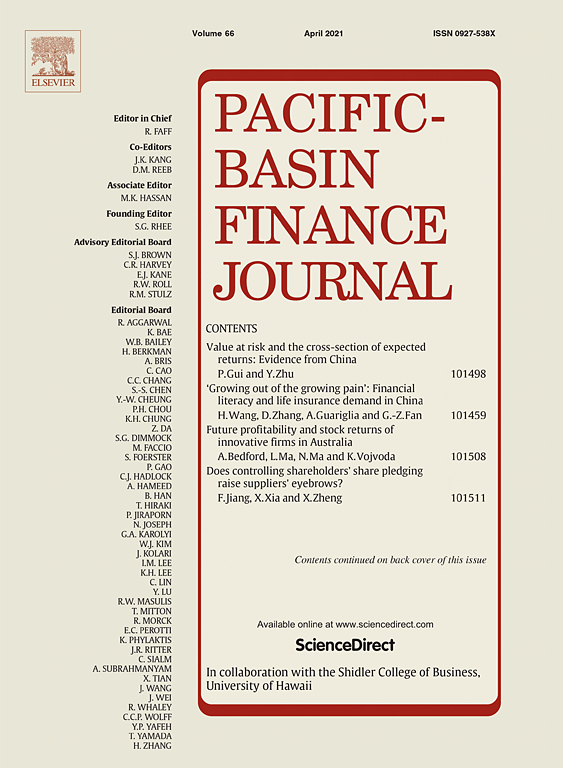
Why are some Chinese Firms Failing in the US Capital Markets? A Machine Learning Approach
in: Pacific-Basin Finance Journal, June 2020
Abstract
We study the market performance of Chinese companies listed in the U.S. stock exchanges using machine learning methods. Predicting the market performance of U.S. listed Chinese firms is a challenging task due to the scarcity of data and the large set of unknown predictors involved in the process. We examine the market performance from three different angles: the underpricing (or short-term market phenomena), the post-issuance stock underperformance (or long-term market phenomena), and the regulatory delistings (IPO failure risk). Using machine learning techniques that can better handle various data problems, we improve on the predictive power of traditional estimations, such as OLS and logit. Our predictive model highlights some novel findings: failed Chinese companies have chosen unreliable U.S. intermediaries when going public, and they tend to suffer from more severe owners-related agency problems.
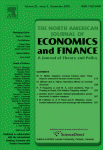
Tornado Activity, House Price and Stock Returns
in: North American Journal of Economics and Finance, April 2020
Abstract
In this paper we investigate the effects of tornado activity on house prices and stock returns in the US. First, using geo-referenced and metropolitan statistical area (MSA)-level data, we find tornado activity to be responsible for a significant drop in house prices. Spillover tornado effects between adjacent MSAs are also detected. Furthermore, our granular analysis provides evidence of tornadoes having a negative impact on stock returns. However, only two sectors seem to contribute to such a negative effect (i.e., consumer discretionary and telecommunications). In a macro-analysis, which relies on aggregate data for the South, West, Midwest and Northeast US regions, we then show that tornado activity generates a significant drop in house prices only in the South and Midwest. In these regions, tornadoes are also responsible for a drop in income. Tornado activity is finally found to positively (negatively) affect stock returns in the Midwest (South). If different sectors are examined, a more heterogeneous picture emerges.
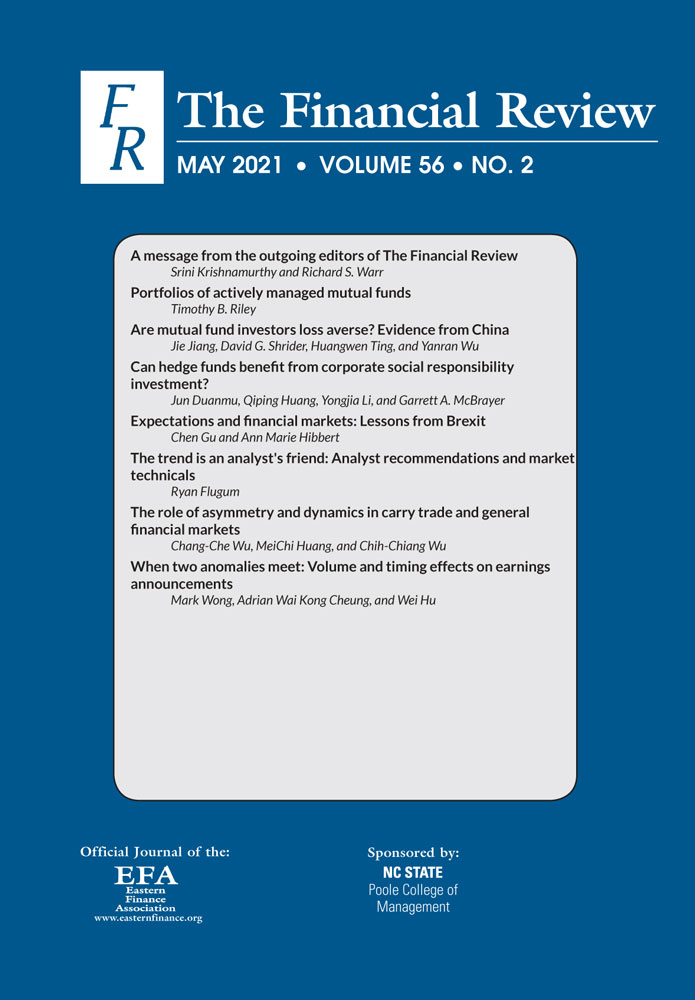
Managerial Effect or Firm Effect: Evidence from the Private Debt Market
in: Financial Review, No. 1, 2020
Abstract
This paper provides evidence that the managerial effect is a key determinant of firms’ cost of capital, in the context of private debt contracting. Applying the novel empirical method developed by an earlier study to a large sample that tracks the job movement of top managers, we find that the managerial effect is a critical and significant factor that explains a large part of the variation in loan contract terms more accurately than firm fixed effects. Additional evidence shows that banks “follow” managers when they change jobs and offer loan contracts with preferential terms to their new firms.
Working Papers
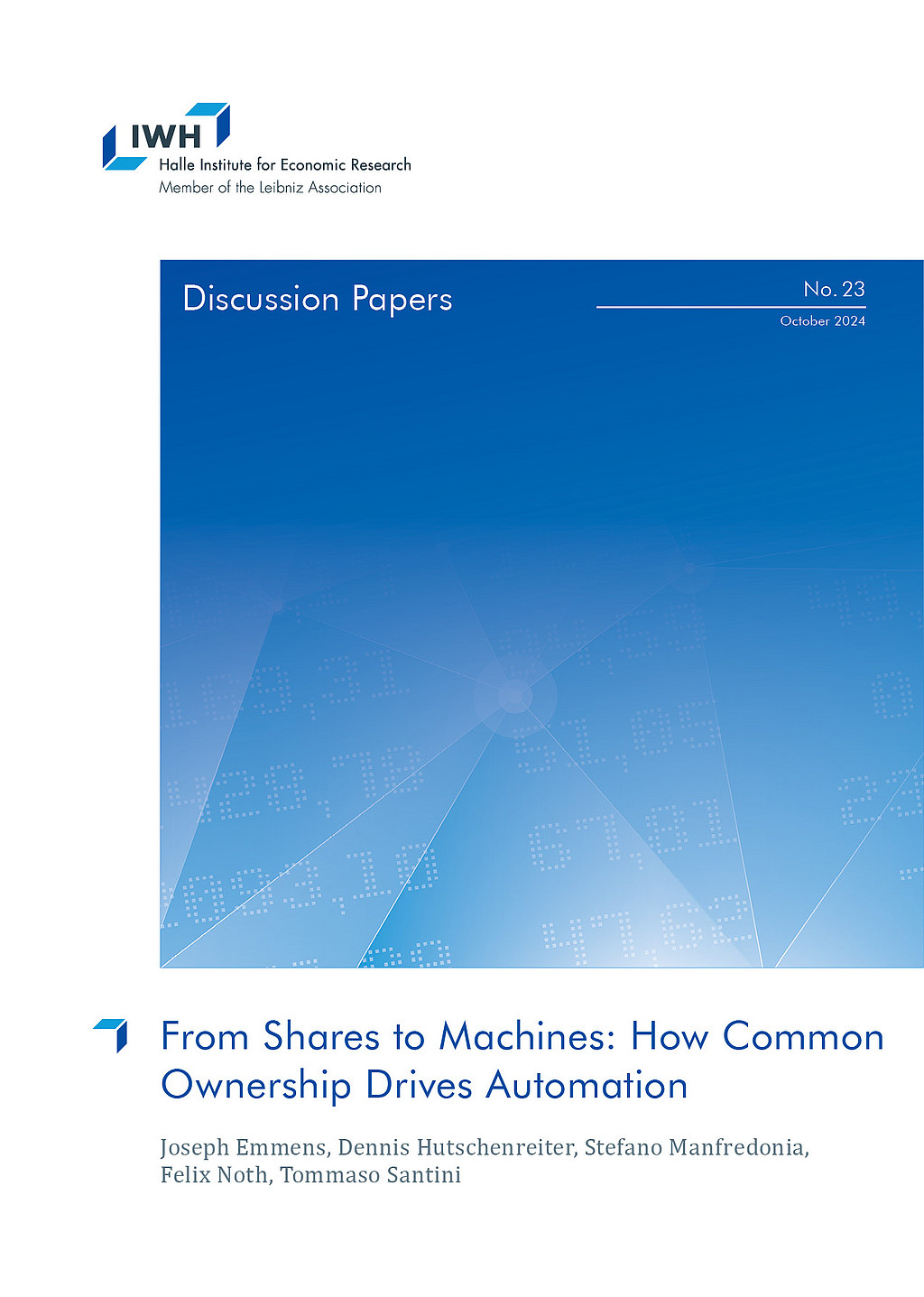
From Shares to Machines: How Common Ownership Drives Automation
in: IWH Discussion Papers, No. 23, 2024
read publication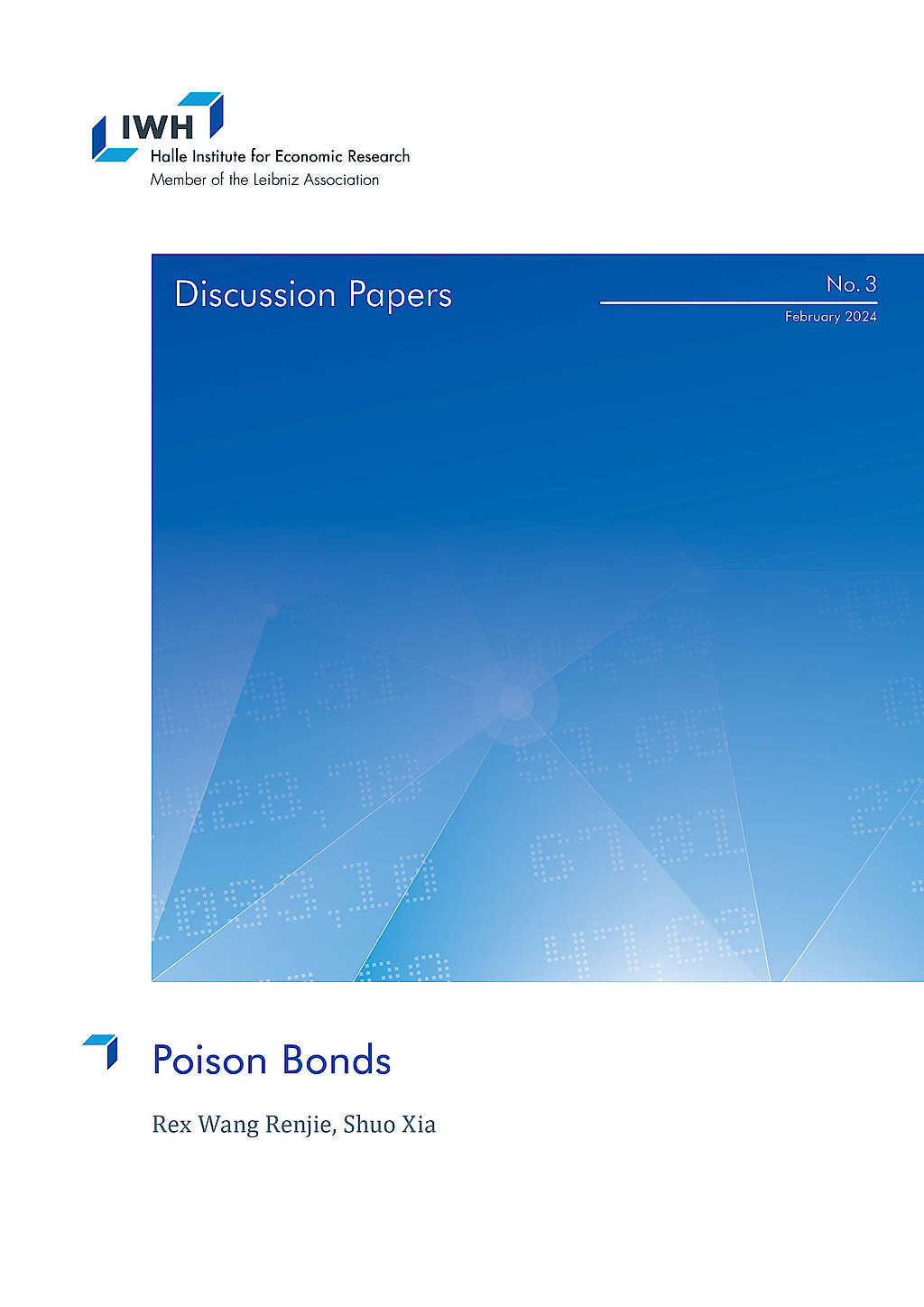
Poison Bonds
in: IWH Discussion Papers, No. 3, 2024
Abstract
This paper documents the rise of “poison bonds”, which are corporate bonds that allow bondholders to demand immediate repayment in a change-of-control event. The share of poison bonds among new issues has grown substantially in recent years, from below 20% in the 90s to over 60% since mid-2000s. This increase is predominantly driven by investment-grade issues. We provide causal evidence that the pressure to eliminate poison pills has led firms to issue poison bonds as an alternative. Our analysis suggests that this practice entrenches incumbent managers and destroys shareholder value. Holding a portfolio of firms that remove poison pills but promptly issue poison bonds results in negative abnormal returns of −7.3% per year. Our findings have important implications for the agency theory of debt: (i) more debt may not discipline the management; and (ii) even without financial distress, managerial entrenchment can lead to agency conflicts between shareholders and creditors.
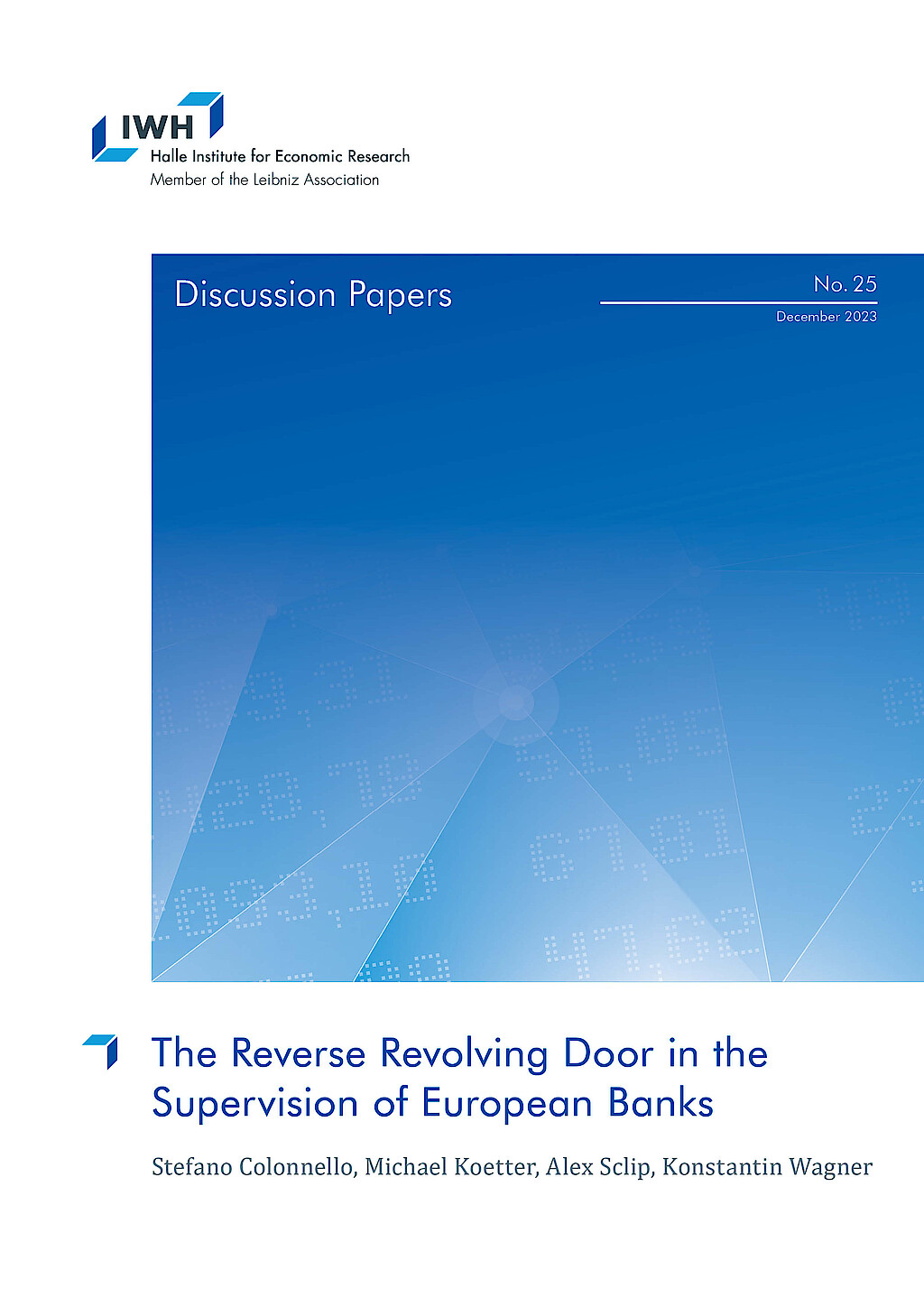
The Reverse Revolving Door in the Supervision of European Banks
in: IWH Discussion Papers, No. 25, 2023
Abstract
We show that around one third of executive directors on the boards of national supervisory authorities (NSA) in European banking have an employment history in the financial industry. The appointment of executives without a finance background associates with negative valuation effects. Appointments of former bankers, in turn, spark positive stock market reactions. This „proximity premium“ of supervised banks is a more likely driver of positive valuation effects than superior financial expertise or intrinsic skills of former executives from the financial industry. Prior to the inception of the European Single Supervisory Mechanism, the presence of former financial industry executives on the board of NSA associates with lower regulatory capital and faster growth of banks, pointing to a more lenient supervisory style.

Poison Bonds
in: SSRN Discussion Paper, 2023
Abstract
This paper documents the rise of "poison bonds", which are corporate bonds that allow bondholders to demand immediate repayment in a change-of-control event. The share of poison bonds among new issues has grown substantially in recent years, from below 20% in the 90s to over 60% after 2005. This increase is predominantly driven by investment-grade issues. We provide causal evidence that the pressure to eliminate poison pills has led firms to issue poison bonds as an alternative. Further analyses suggest that this practice entrenches incumbent managers, coincidentally benefits bondholders, but destroys shareholder value. Holding a portfolio of firms that remove poison pills but promptly issue poison bonds results in negative abnormal returns of -7.3% per year. Our findings have important implications for understanding the agency benefits and costs of debt: (1) more debt does not necessarily discipline the management; and (2) even without financial distress, managerial entrenchment can lead to conflicts between shareholders and creditors.
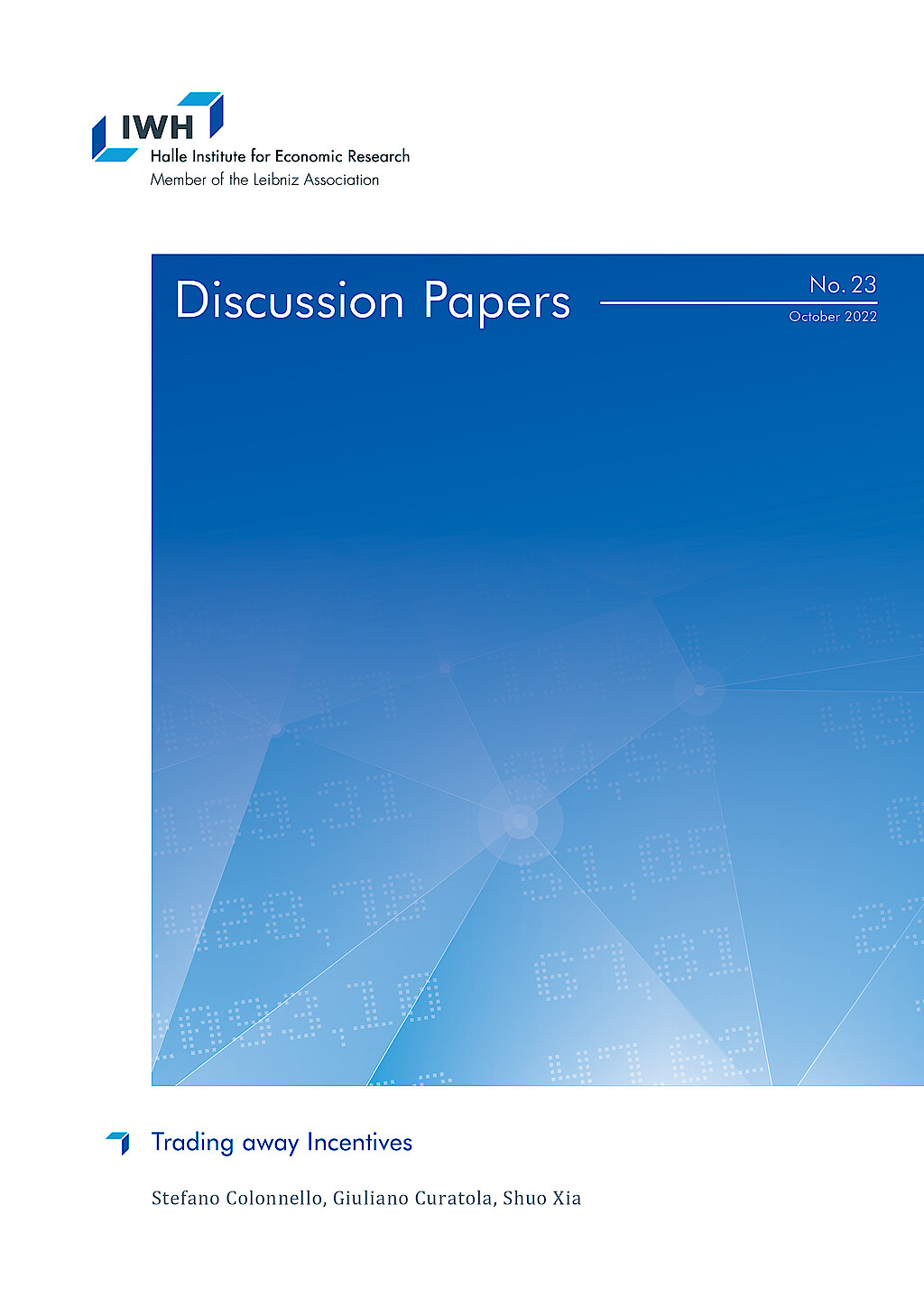
Trading away Incentives
in: IWH Discussion Papers, No. 23, 2022
Abstract
Equity pay has been the primary component of managerial compensation packages at US public firms since the early 1990s. Using a comprehensive sample of top executives from 1992-2020, we estimate to what extent they trade firm equity held in their portfolios to neutralize increments in ownership due to annual equity pay. Executives accommodate ownership increases linked to options awards. Conversely, increases in stock holdings linked to option exercises and restricted stock grants are largely neutralized through comparable sales of unrestricted shares. Variation in stock trading responses across executives hardly appears to respond to diversification motives. From a theoretical standpoint, these results challenge (i) the common, generally implicit assumption that managers cannot undo their incentive packages, (ii) the standard modeling practice of treating different equity pay items homogeneously, and (iii) the often taken for granted crucial role of diversification motives in managers’ portfolio choices.









